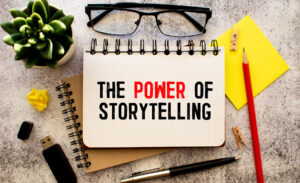 As the Olympics kick-off, it got me thinking about what is IT that sets these athletes apart from the rest.
As the Olympics kick-off, it got me thinking about what is IT that sets these athletes apart from the rest.
Surely their competitive DNA includes:
- top notch skills and physical abilities
- razor sharp focus on their goals
- relentless determination
- uncompromising discipline and,
- a huge competitive desire to outperform their best and others’ best to achieve their dreams.
But, how do they rise above all the obstacles they face along the way? How do they continuously get better? Most have been working on the dream of being an Olympic Champion their entire life!
I believe what they have that makes them better are their Coaches, Mentors, Fellow Athletes, Family, Role Models. They live in a world of constant feedback on what’s working – what’s not – what to tweak & change to get better. This continuous conversation is natural and expected in their world. Everyone needs feedback. Where would our U.S. Olympic hopefuls be if they just went at it on their own?
If Ken Blanchard’s quote “Feedback is the breakfast of champions” is true – why do so many of us brace for the worst, when someone says, “Can I give you some feedback?” Even as the deliverer of feedback, it isn’t always comfortable talking to someone about what you think they might need help with BUT, the conversation is usually worth the effort. I want to encourage you to consider what creating a culture of continuous feedback could do for your work environment.
5 Tips for getting better at giving feedback
Give Feedback In The Moment.
Feedback is much more effective if given immediately. Waiting until the annual review process rolls around is not very effective. If you want to make an impression worth acting upon – sooner is better than later. Encourage an atmosphere of feedback by asking for & giving feedback in the moment, while the good job/missed opportunity is fresh & relevant.
Give Behavioral Based Feedback.
Base your feedback whether positive or negative on evidence of what you witnessed. I noticed, I saw, I heard, instead of you looked stressed, you acted frustrated. Evidence is factual, specific and less likely to be disputable or filled with emotion. Saying you look frustrated & upset might cause the person to become defensive because it can be based upon your own bias or assumptions.
Be Specific.
“Great job” is nice to hear, but isn’t very actionable. Be specific about what you are recommending they should be doing more of or less of and why you believe they will see better results.
Be Mindful of the Words You Choose – no buts allowed.
I am not a believer in that you must start with a positive to soften the blow of a negative (or developmental) recommendation. Any but, in the sentence negates the positive feedback and reduces the authenticity of your good intentions. Honest feedback is meant to engage your people in a conversation about what you observed and insights you can share.
Create An Environment Of Continuous Feedback.
Build it into the daily conversation to increase comfort with providing & receiving feedback from not only bosses but between peers & colleagues. It is well known, that feedback is a vital contributor to employee engagement. Getting feedback both positive and negative is a gift. If you’re not getting it – I recommend you start asking for it. Getting input into recognizing our blindspots, or what impact we’re having on people/situations is priceless, otherwise we’ll continue making the same mistakes.
So as you enjoy the 2018 Olympics think about making feedback part of the conversation. If the culture is one that supports developing, communicating successes & mistakes – we all learn and achieve great things.
Who will we be seeing on the next Wheaties box?
Shelli Walker is a Partner with PeopleResults. Follow her on twitter @ShelliWalker or connect via email at swalker@people-results.com.



